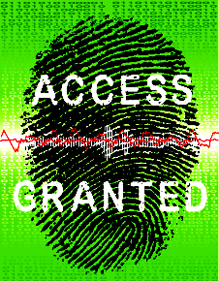
The true value of the Public Access to Information Act (PAIA) as a tool for democracy emerged this week when 15 organisations – among them media houses – received the long-awaited Manase report, which details corruption worth hundreds of millions of rand in eThekwini Municipality.
The groups had applied for the report under the Act. It is a piece of legislation that can bring with it a fair share of headaches for those trying to use. But the victory of this week proved that when the PAIA does work, it works well. Given this, the Public Access to Information Act is our hero for the week.
eThekwini has kept the report under wraps for over two years. It was commissioned after an assessment by auditor-general Terence Nombembe revealed that the audit could not account for over R500-million spent by the municipality in the 2009/10 financial year. The media response to the refusal by eThekwini to release the report has been among the most vociferous involving the local government sector for some time.
In May, KwaZulu-Natal co-operative governance and traditional affairs MEC Nomusa Dube revealed what she called a “progress report” on the disciplinary measures instituted against those implicated in the report. In reaction, opposition parties and media bodies criticised her department’s reluctance to release the full document, numbering a whopping 7 000 pages. She stated at the press briefing that those interested in gaining access to the full report would have to follow the PAIA process. Two months later the efforts of several political parties, NGOs and media houses have paid off.
The South African Human Rights Commission describes the objective of the Act as being “to promote transparency, accountability and effective governance of all public and private bodies, by empowering and educating everyone to understand their rights in terms of PAIA so that they are able to exercise this right in relation to public and private bodies”.
It has been in place since 2000 and supports the public’s right to information held by either the state or private entities. Access to this information has to be in accordance with the wishes of the individual or organisation to uphold a right stipulated in the country’s Constitution.
Not always simple
Once a PAIA request has been made to a public or private entity – addressed to its appointed information officer – that entity has to respond within 30 days by either providing the information requested or alerting the requester of its need for an extension. If an extension is required by the entity, it may not exceed a further 30 days and it should stipulate the reason for needing the extension.
In its Secret State of the Nation document released to coincide with President Jacob Zuma’s actual State of the Nation speech in February, media rights advocacy group Right 2 Know highlighted the shortcomings of the PAIA.
According to R2K, the South African History Archive the South African History Archive (Saha) in 2012 surveyed all the PAIA requests that it had administered in the previous year. Saha revealed that of 159 requests for information held by various public and private bodies, 102 were either outright refused or simply received no answer (which is a deemed refusal under the law). “This suggests a genuine crisis in the mechanisms that are meant to ensure the public’s right to know,” R2K said at the time.
Other successes
Besides the eThekwini PAIA victory, another recent achievement was that of the Mail & Guardian’s application for access to a report held by the Presidency on information regarding the legality of the 2002 Zimbabwe elections. When the initial request was refused, the matter was followed by a four-year court battle that only ended earlier this year.
Also deserving of a mention is the Saha’s online PAIA request tracker, which collates applications by individuals and organisations belonging to its PAIA network and puts them in the public domain where their progress can be monitored.
Although the unanswered requests on the system far outnumber the successful ones, signs are there that South Africans are using this all-important tool for what it is intended: to make their government accountable to its citizens.
For a step-by-step guide on how to make a PAIA request, click here.

